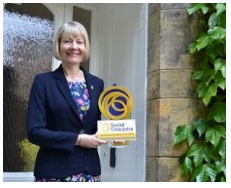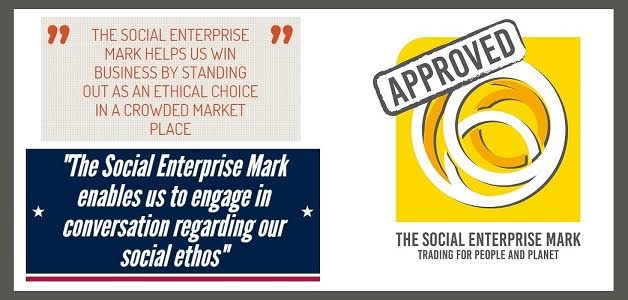Lucy Findlay, Managing Director of Social Enterprise Mark CIC, writes about the value of social enterprise accreditation for Higher Education Institutions.
With tuition fees in the UK now amongst the highest in the world, institutions need to move beyond the immediate focus on graduate earnings and demonstrate to students how they can contribute to the social, cultural and environmental wellbeing of their communities, society and the world around them, rather than simply thinking of their degree as a route to a highly-paid career.
As universities seek to transform the way they are perceived by students and other stakeholders, there has been increasing interest in the externally assessed Social Enterprise Mark and Social Enterprise Gold Mark. These prove to students how institutions apply in practice the values and knowledge that are taught, and how they too can be part of a social enterprise culture. It is an independent guarantee, which communicates sustainable and ethical business credentials to the next generation of applicants, as well as current students and staff and stakeholders.

Social Enterprise Mark accredited HEIs
Plymouth University became the first HEI to be awarded the Social Enterprise Mark back in 2012. Since then, a growing number of institutions have been accredited by Social Enterprise Mark CIC, including GuildHE members University of St Mark & St John, York St John University. Most recently Plymouth College of Art and The University of Winchester, which were both awarded the Social Enterprise Gold Mark last month. HEIs are increasingly identifying themselves as social enterprises, with huge potential to bring about positive social change.
During our assessment of the eight institutions that we accredit, we have seen diverse examples of how HEIs are engaging with the social enterprise agenda:
- by widening participation in Higher Education and increasing social mobility – for example, University of St Mark & St John was identified as the top university for social mobility in a 2014 report, reflecting the high percentage of students from poorer backgrounds securing graduate jobs after leaving the University;
- by embedding social enterprise principles across their curriculum – for example, The University of Winchester has integrated climate change across their curriculum, ensuring that every student who leaves the University has a good understanding of the impacts of climate change in their areas of study;
- by working with local communities – for example, Plymouth College of Art co-founded a ground breaking free school promoting art and creative industries career aspirations in a marginalised community;
- by providing learning environments that promote equality and diversity – for example, York St John University is in the Stonewall top 100 employers for LGBT staff.

Karen Stanton, Vice-Chancellor, York St John Univeristy
The process of applying for the accreditation is beneficial in itself, as Karen Stanton, Vice Chancellor of York St John University, explained:
“We found the whole experience of applying for the Social Enterprise Gold Mark to be immensely beneficial for the University. As with many audits, the opportunity to step back, take stock and really analyse what we were doing was very valuable.”
Colette Cherry, Assistant Vice Chancellor of The University of Winchester, said: “I don’t think we could possibly have anticipated at the start of the process just how beneficial it would be to our thinking.”
In an increasingly competitive market, the Social Enterprise Mark and Social Enterprise Gold Mark are valuable differentiators that students can use to identify universities that can support them be a catalyst for social change, as part of a recognised social enterprise institution. It shows that institutions really do practice what they preach.
To find out more about how you can embed social enterprise in your institution, please visit our website or give us a call on 0345 504 6536.

